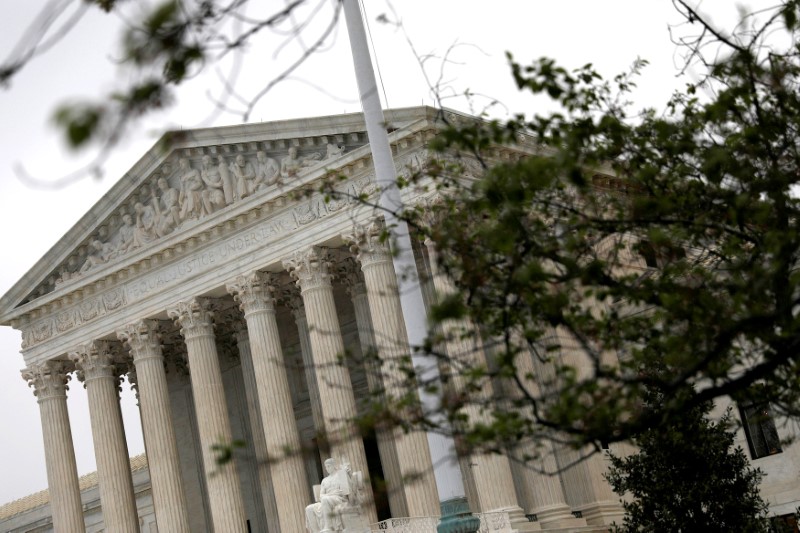By Andrew Chung
NEW YORK (Reuters) - A small group of companies and individuals are looking to register racially charged words and symbols for their products, including the N-word and a swastika, based on a U.S. Supreme Court decision on trademarks last month.
At least nine such applications have been filed with the U.S. Patent and Trademark Office (PTO) since the unanimous June 19 ruling throwing out a federal law prohibiting disparaging trademarks. All are pending.
In the past, the agency generally rejected similar filings because they included material that denigrated an identifiable group. But the court said the law violated free speech rights under the U.S. Constitution.
If the applicants follow through, such products as energy drinks, sweatshirts and fragrances could be branded with racial slurs. Federally registered trademarks, though not required to sell goods in the marketplace, can protect businesses against unauthorized uses of their brands.
Attorney David Bell, a trademark expert with the law firm Haynes and Boone, said the filings could be the tip of the iceberg if more people seek trademarks on offensive and vulgar terms.
"We're now opening the door, chipping away at what's acceptable under cultural norms," he said. "I think it could be a slippery slope, where you get more people and companies thinking, 'This is okay.'"
Since the decision, seven trademark applications for versions of the N-word, an offensive term aimed at black people, have been filed, PTO records show. Other applications include an epithet for people of Chinese descent, as well as a swastika symbol, the emblem of the German Nazi party.
The PTO told its staff on June 26 that the federal law's disparagement provision can no longer be used to reject a trademark, according to written guidance seen by Reuters.
The Trump administration had urged the high court to keep the provision in place.
In a legal brief, the Department of Justice said if the Supreme Court struck it down, the PTO would be forced to trademark "the most repellent racial slurs and white-supremacist slogans."
The PTO and the Department of Justice declined to comment.
Bell said he did not expect hate groups to seize on the high court ruling to further their agenda.
"Might the (Ku Klux Klan) or neo-Nazi groups start doing it more? They might, but I don't think trademark filings are high on their radar," he said.
'HATE INTO HOPE'
Steven Maynard, a Virginia consultant who helps others obtain trademarks, started Snowflake Enterprises with several investors to apply for offensive trademarks after the court ruled.
The company has submitted applications to trademark a version of the N-word to appear on clothing, hard liquor and beer, and intends to turn the slur into a brand, Maynard said in an interview. The company has a dedicated website.
Maynard, 50, said he is not racist but believes that saturating the market with such epithets can rob them of their racist connotations. The idea is to spark discussion and turn "hate into hope," he said in a phone interview.
"If you suppress it, you give it power," Maynard said.
Maynard's argument is similar to that offered by The Slants, a Portland, Oregon-based Asian-American dance rock band, which failed in 2013 to trademark its name. The band said it was trying to reclaim a term widely viewed as a derogatory reference to Asian people's eyes.
An appeal of that rejection led to the Supreme Court ruling.
John Yang, president of Asian Americans Advancing Justice - AAJC, a Washington, D.C., civil rights organization, said the Slants' motivations for reappropriating a derogatory term were honest.
But he said it was unclear whether the same could be said of new applicants who might have purely commercial motivations or even racist ones. "We are concerned that once you start to peel the onion there might be different stories involved," Yang said.
San Francisco entrepreneur Mike Lin, 45, whose parents are Taiwanese, submitted a trademark application for a slur against Chinese people, one he said he was called as a kid and wanted to reappropriate, or "take back."

He intends to capitalize on it by selling T-shirts bearing the slur and using the trademark application to generate news coverage for his company 47/72 Inc, he said.